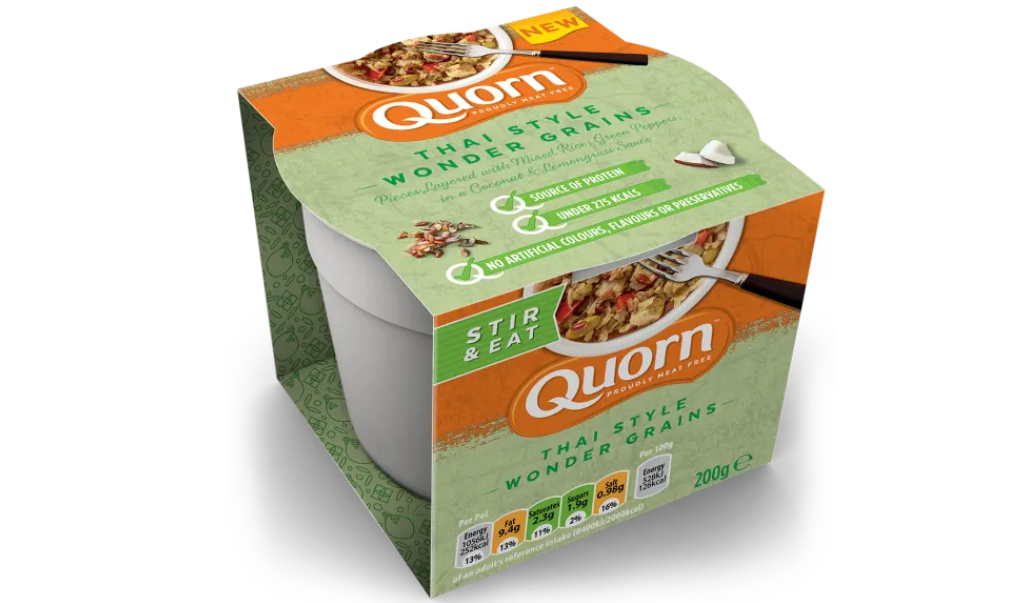Quorn advert that claimed its food could ‘help reduce carbon footprint’ ruled misleading
It also said that consumers who ‘care about climate change’ should 'take a step in the right direction’

Your support helps us to tell the story
From reproductive rights to climate change to Big Tech, The Independent is on the ground when the story is developing. Whether it's investigating the financials of Elon Musk's pro-Trump PAC or producing our latest documentary, 'The A Word', which shines a light on the American women fighting for reproductive rights, we know how important it is to parse out the facts from the messaging.
At such a critical moment in US history, we need reporters on the ground. Your donation allows us to keep sending journalists to speak to both sides of the story.
The Independent is trusted by Americans across the entire political spectrum. And unlike many other quality news outlets, we choose not to lock Americans out of our reporting and analysis with paywalls. We believe quality journalism should be available to everyone, paid for by those who can afford it.
Your support makes all the difference.An advert for Quorn’s Thai Wondergrains has been ruled misleading by the Advertising Standards Authority (ASA) after failing to clearly explain its environmental claims.
The TV advert was promoting the Thai Wondergrains, made from Quorn pieces, rice, peppers and coconut sauce, and said the product could “help reduce our carbon footprint”.
It also said that consumers who “care about climate change” should “take a step in the right direction” by buying the item.
The advert was aired in April 2020 and 32 complainants challenged the claims made.
Now ASA has ruled that Marlow Foods, which owns Quorn, did not make clear enough what it meant by the claimed reduction in carbon footprint, including what this reduction was being measured against.
It meant "viewers would not know on what this reduction was based", the ASA said.
Marlow Foods defended the advert saying that the food item had been certified by the Carbon Trust, an environmental consultant which helps businesses become more sustainable.
The brand said the product was awarded the Carbon Reduction Footprint certification, meaning it is reducing emissions year-on-year.
It also stated that it had signed up to the carbon footprint protocol, with a commitment to continue reducing the product's emissions.
Quorn pieces, a key ingredient of the Wondergrains, have a lower carbon footprint "at factory gate" than chicken, according to Marlow Foods.
Despite the defence, because the advert did not make clear the basis of the initial claims, and state that Quorn was committed to reducing its footprint over time, ASA concluded its message was “likely to mislead viewers”.
In its ruling, the watchdog told Marlow Foods to ensure its environmental claims were made clear and did not "mislead by omitting material information from their ads" in future.
A 2018 study from the University of Oxford found that cutting meat and dairy products from your diet could reduce an individual's carbon footprint from food by up to 73 per cent.
If everyone stopped eating these foods, they found that global farmland use could be reduced by 75 per cent, an area equivalent to the size of the US, China, Australia and the EU combined.
Lead author Joseph Poore said: “A vegan diet is probably the single biggest way to reduce your impact on planet Earth, not just greenhouse gases, but global acidification, eutrophication, land use and water use."


Join our commenting forum
Join thought-provoking conversations, follow other Independent readers and see their replies
Comments